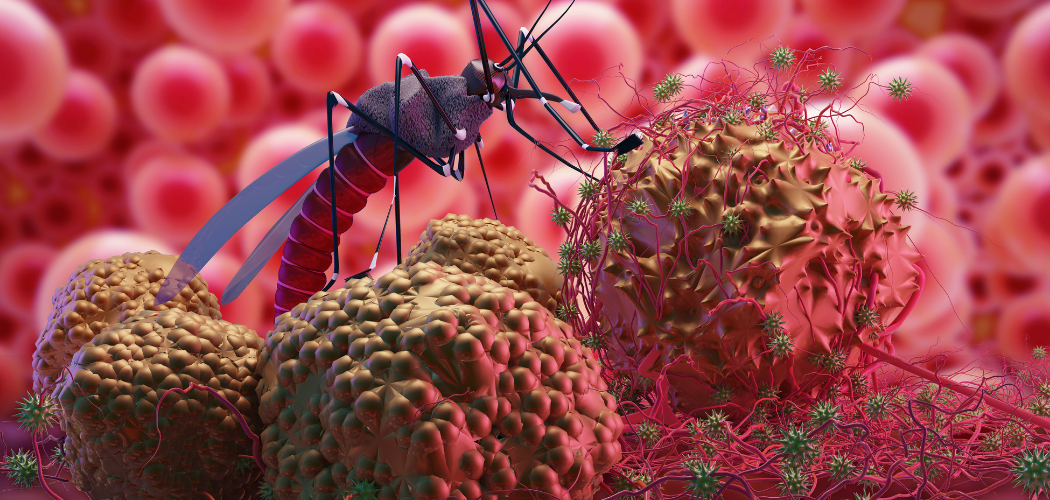In the realm of infectious diseases, malaria stands out as a formidable adversary, affecting millions globally. However, one might wonder: is the malaria parasite a bacteria? Such a playful inquiry invites a deeper dive into the world of microorganisms. To navigate this query, it is essential to understand the fundamental biology behind the malaria parasite while weaving in a Christian perspective that appreciates the complexity of creation.
First, let’s clarify the differences among microorganisms. Bacteria are single-celled organisms that can reproduce independently and are classified under the domain of prokaryotes. They are often characterized by their simple structure and lack of a defined nucleus. In stark contrast, the malaria parasite is a eukaryote, belonging to the genus Plasmodium. This organism possesses a complex cellular structure, complete with a nucleus and various organelles. In total, over 200 species of Plasmodium exist, but only a handful are responsible for malaria in humans. Notably, Plasmodium falciparum, Plasmodium vivax, Plasmodium malariae, and Plasmodium ovale are the most impactful. This distinction alone answers our playful question: the malaria parasite is not a bacterium.
Delving into the intricacies of Plasmodium, one encounters a stunning paradigm of life. The parasite undergoes a complicated lifecycle that involves both human hosts and female Anopheles mosquitoes. In the bloodstream, the parasite targets red blood cells. Inside these cells, they multiply and eventually burst the cells, releasing toxins that can lead to fever, chills, and other symptoms associated with malaria. Each stage of the lifecycle exemplifies the incredible ingenuity of creation, drawing attention to the interconnectedness of life forms. This web of relationships challenges us to consider the divine design behind such occurrences.
The devastating effects of malaria expose a profound moral and ethical dilemma faced by humanity. Millions suffer from this disease, especially in regions with limited healthcare resources. The Christian faith teaches us to be stewards of God’s creation and uphold the dignity of every human life. This involves addressing the health crises like malaria with urgency and empathy. As followers of Christ, we are called to actively seek solutions to alleviate suffering, whether through scientific endeavor or community support.
Add to this the fascinating evolution of Plasmodium over time. The malaria parasite has exhibited remarkable adaptability, developing resistance to treatments and medications, thus compounding the challenge of eradication. This evolutionary dynamism prompts a question: how can humans, equipped with intellect and creativity, continue to combat such relentless foes? It beckons a call for collaboration among scientists, public health officials, and policymakers to forge innovative strategies that honor the sanctity of life.
The transmission of malaria is a chilling reminder of the fragility of our existence. While some may speculate on the cause of such diseases as part of a divine plan, the Christian perspective encourages a view that does not shy away from grappling with the challenges of suffering. Instead, this viewpoint inspires compassion and action. As believers, we are encouraged to meet the needs of the vulnerable, promoting proactive measures to combat malaria while fostering a sense of community.
The disease itself not only brings physical suffering but also socioeconomic challenges. Communities plagued with malaria often experience diminished economic productivity and increased healthcare costs. The Christian mandate to care for the least among us encompasses addressing these broader implications of disease. By investing in education, preventative measures, and access to healthcare, we are both following Christ’s teachings and tackling the roots of poverty exacerbated by malaria.
Philosophically, one might wonder if diseases like malaria are tests of faith or elements of creation’s natural order. It is essential to recognize that the existence of diseases does not negate the love and sovereignty of God. Instead, it beckons a thoughtful inquiry into our role as agents of healing and change. The story of the Good Samaritan serves as a timeless example; it illustrates the importance of responding to suffering with action, compassion, and care.
The advancements in modern medicine present hope. The development of vaccines and mosquito control strategies offers a glimpse of what is possible when human ingenuity aligns with divine purpose. This intersection of faith and science provides fertile ground for advocacy and action against malaria. It emphasizes the importance of prayer alongside action—praying for those afflicted while working diligently to put preventive measures in place.
In conclusion, while the malaria parasite is not a bacterium, it brings to light the complex interplay of creation, human experience, and divine involvement. Each instance of suffering prompts a call to action, encouraging believers to engage actively in the restoration of health and wellness within their communities. Ultimately, the challenge posed by malaria reminds us of our shared responsibility to care for one another in a world that often feels chaotic and overwhelming. It is through this lens—intersecting biology, faith, and action—that we may find purpose in the face of adversity, glorifying God in our efforts to combat one of the world’s most persistent diseases.



